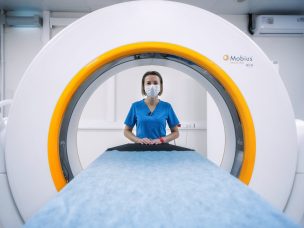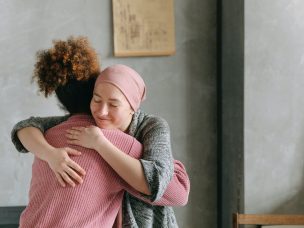Thanks to Henrietta Lacks, a woman whose cervical cancer cells have significantly contributed to numerous scientific and medical breakthroughs and advancements, the medical community understands so much more about human health and how to treat many diseases.
Although Henrietta Lacks passed away in 1951, HeLa cells, as they are called, are still used as a fundamental component of advanced research. Henrietta’s life and contribution prove that Black people have historically played and continue to play an essential role in the advancement of healthcare.
According to the FDA, “racial and ethnic minorities are underrepresented in clinical trials. This lack of representation is a concern because people of different ages, races, and ethnicities may react differently to medical products.” In recent years, FDA Drug Trial Snapshots show that less than 10% of drug participants were Black while around 80% were white. This massive contrast raises many concerns that Black/African Americans may not be receiving adequate treatment.
Clinical trials determine the safety and efficacy of medical products, with specific protocols that can establish several factors involving screening, diagnosis, treatment, prevention, epidemiology, quality of life, and genetics. Because these trials mostly involve white participants, we do not know how efficacious these products are for Black people, how they can be improved, or whether they should even be given.
This research is vital because it has been scientifically proven that certain diseases affect Black people more or in different ways than white people.
The main reason for the lack of representation of Blacks participating in clinical trials is that most Black/African Americans distrust the medical community. Efforts are being made to get the medical community to address that distrust, but until trust is built, there will likely be little progress. Black people need to see that medical professionals understand why there is great hesitation. They also need to see medical professionals consistently building trust throughout the Black community.
Trust can be built. When Black people are convinced that their best interests are in the foreground, they will understand why less than 10% representation in clinical trials, in general, is not in their best interest. Where they are not seen, they cannot be heard.
We founded Acclinate to address this problem from the front lines, within communities and families, through trust, transparency, and relational equity. By engaging and educating people of color about these issues, we can close the gap in representation for minorities within clinical trials and bring widespread change to a broken and neglectful healthcare system.
We can bridge the gap between the healthcare industry and minority populations because there is mutual benefit in the partnership. It is a partnership that cannot be one-sided. For too long, the industry’s focus has been on the results rather than the people. We established our #NOWINCLUDED community to redirect that focus. Clinical trials are essential, but so are personal and family health before and after a trial [1].
Tiffany Whitlow and Delmonize Smith are co-founders of Acclinate and members of the 2021 Cox Enterprises Social Impact Accelerator powered by Techstars class. This three-month program helps ten for-profit startups boost their companies in the marketplace through mentoring, networking, and funding.
Source:
[1] Whitlow, T. (2021, March 16). Why Black Participation is Important for Clinical Trials. Acclinate. https://acclinate.com/why-black-participation-is-important-for-clinical-trials/










